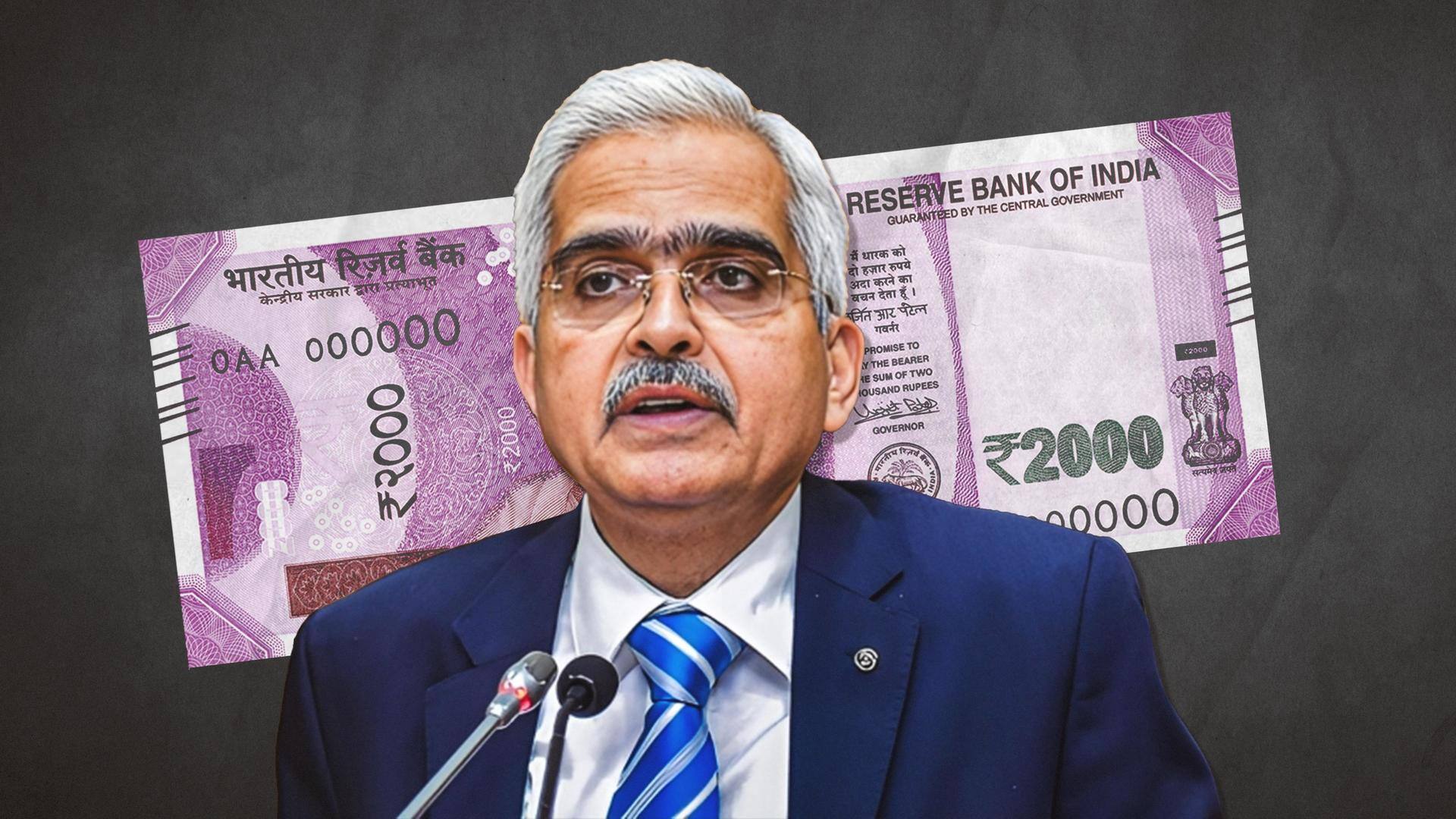
No negative impact of Rs. 2,000 notes' withdrawal: RBI governor
What's the story
The withdrawal of Rs. 2,000 currency notes that the Reserve Bank of India (RBI) announced last month will have no negative impact on the economy, RBI Governor Shaktikanta Das said on Monday. However, he underlined that the Indian economy would have to deal with "two or three challenges," including international uncertainty and the El Nino forecast, apart from weather-related events.
Context
Why does this story matter?
The RBI's announcement of the withdrawal of Rs. 2,000 notes triggered collective anxiety among citizens. They feared a reprise of the 2016 demonetization, which had led to the introduction of the notes. After the announcement, people queued at banks and filling stations to exchange the notes. Allegedly, besides failed promises to combat counterfeit currency and terrorism, the demonetization caused India's GDP to plunge considerably.
Statement
RBI, government took several supply-side measures: Das
Das added that the RBI and the government took several measures to insulate the economy from the withdrawal of Rs. 2,000 notes. It included raising interest rates in a "calibrated" manner, as a result of which, inflation has reduced to 4.25%, he said. He said that international commodity prices had jumped and that unseasonal rains caused prices of some goods to surge domestically.
Twitter Post
'Remains to be seen how positive move turns out': Das
EXCLUSIVE | VIDEO: "One thing I can clearly tell you is that the Rs 2,000 currency note that we are withdrawing right now will not have any negative impact on the economy," says RBI Governor Shaktikanta Das. pic.twitter.com/SBR6pZhsP7
— Press Trust of India (@PTI_News) June 26, 2023
Return
72% notes deposited or exchanged: Das
Furthermore, Das stated that more than two-thirds of the total Rs. 2,000 notes in circulation, worth Rs. 2.62 lakh crore, have been returned. The total value of Rs. 2,000 notes was Rs. 3.62 lakh crore on March 31. He added that recalling the notes will have no bearing on monetary stability.
Deadline
Rs. 2,000 notes will continue to be legal tender
Das earlier stressed that Rs. 2,000 currency notes had not been demonetized and will continue to be legal tender. The notes were withdrawn as part of the RBI's currency management and people can deposit and exchange the notes until September 30. Only 10 notes can be exchanged at once; however, there's no limit on the number of times they can be deposited or exchanged.